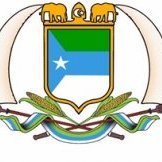Leaderboard
Popular Content
Showing content with the highest reputation on 03/06/2020 in all areas
-
2 pointsOne of the biggest problems currently facing the country is a lack of industrialised output and by extension foreign exchange. This chronic lack of foreign exchange is one of the reasons the government is so reliant on the so-called 'Beesha Lixaad' or International Community. This also means the government is unable to buy arms on the black market (to bypass the arms embargo) as countless state and non-state entities are able to do. When you live off donations, you must be able to show where those funds were spent. This means the armed forces stayed underdeveloped and the security situation remains insecure. One way out of this is to rapidly establish industries in a cheap and easy manner to generate the much needed dollars the government needs to rebuild the country and institutions. Notice, I say we need the industries first before we can begin rebuilding the country. It might sound counter-intuitive but allow me to continue. Firstly, the government needs to establish one large industrial complex on the outskirts of Mogadishu, somewhere in between Afgooye and Xamar. This industrial complex will have its own water and electricity supply as well as all the warehouses needed. The power station for this industrial complex will only supply power to the factories and buildings housed in the complex and will not be connected to the national grid. Likewise the water supply. The reason is simple, the government simply can't afford to give power and water to the country. The people can wait for the dollars to come before expecting social services. Neighbouring Ethiopia recently built an Industrial Complex on the outskirts of the capital for $200 million so we can assume this complex to cost around that figure. How will the government afford that? The answer is two-fold. We need a Somali Shilling budget and a Dollar Budget. The Somali Shilling budget will cover the cost of the local labour and any material that can be sourced locally. Where will the Somali Shillings come from? The government has two avenues: one is the Japanese system of Abenomics. Simply put, this is where the government prints bonds for a certain sum of money. The central bank then buys off the bonds from the Japanese government in exchange for Japanese Yen which the central bank simply prints (it has the power to do so and does). The government then uses the Japanese Yen for whatever purpose it needs and pays the interest on the bonds to the Central Bank when required. The Central Bank then deducts its costs from the income it receives from the government interest (literally admin costs and the cost of the printing, i.e. peanuts) and then transfers the profits back to the Japanese Treasury as the Japanese Government owns the central bank. You can see how the Japanese government massively benefits from this sleight of hand and why the Japanese economy has been doing so well under Abe. This system is currently being used by both parties in the Libyan civil war to fund their governments and armies. The other way is the Chinese way. When China needs Chinese Yuan to fund infrastructure development or local industries, it simply borrows from government owned banks who magically create the Chinese Yuan on their books and lend to the government at very very low interest rates (much much lower than normal commercial banks in the West). The government then builds the infrastructure it needs and then pays back the loan (over a very long term) from the proceeds (toll charges etc.) and after a while the government just writes off the debt and non-performing loans. This is how China has been able to afford all the amazing infrastructure that country has built in the last 20 years. Doesn't this cause inflation? No, no it doesn't. Despite monetising 50% of government debt the Japanese are still struggling with deflation, not inflation. As Keynes said, as long as there's demand printing money won't cause inflation. Read more about the Chinese and Japanese systems here: https://ellenbrown.com/2019/07/10/how-to-pay-for-it-all-an-option-the-candidates-missed/#more-14224 So the government has the Shillings to pay for the local labour and materials, but where will it get the dollars to pay for the foreign engineers and materials that will be required to build this industrial park? The answer is to introduce a new Development Tax on Xawaaladaha. The proceeds from this tax should go in a special Development Fund that will be exclusively used to fund this industrialisation and nothing else, come rain or shine, abaar iyo aaran, not a penny is to be spent on anything else, even on relief food. With billions coming into the country via remittances every year even a small 5% tax will easily pay for this project and many more.
-
2 pointsSecondly, once the industrial complex is established, the government should encourage local large businesses that have a proven success record (not start ups) to open Textile Factories in the industrial park. These local companies are then to enter into technology transfer agreements (not joint ventures) with large foreign large textile companies (plenty in China and Turkey). The foreign company will provide all the machinery and tools required by the factory, engineers and technicians to help run the factory and train local engineers and technicians, and most importantly marketing for the production of the factories. In return, the foreign company gets a yearly royalty (paid in dollars) and a percentage of all sales. Getting access to foreign markets should not be too difficult as Somalia is eligible for programmes such as the Everything But Arms programme that allows tariff free access for the exports of poor countries. We can also target African countries and the Middle East. This method is how Bangladesh was able to start its successful textile industry in the late 70s when a single company called Desh entered into such an agreement with a large Korean company called Daewoo. Today, Bangladesh earns billions from this industry. Read here for Bangladesh's remarkable story: https://www.jstor.org/stable/10.1086/661218?seq=1#metadata_info_tab_contents The government in return will give local companies special low cost long maturity loans to the local factories located in this industrial complex. This will help them with their start up costs and paying for wages etc (it will take the local companies time to learn how to run the factories efficiently and turn a profit). The government will also provide free rent, water and electricity and tax benefits for the first 5 years. It will also provide these companies priveleged access via special accounts through the Development Fund to get the dollars these companies need to pay for the technology licenses and royalties, and imports needed to manufacture the textiles. These companies based in the industrial park will have zero rated import tax and port duties on all goods that go into exports via a bonded warehouse system (basically in a local company spends 1 million shillings in import taxes and port duties on dyes from turkey, they will be reimbursed this money once they export the goods those dyes were made into and they provide a proof of export). In return for all this support, every company based in the industrial park will have to meet rigorous export targets. For example, after 1 year each company will have to export a certain figure (in dollars) and say 75% off all production output has to be destined for export, not the Somali market. The targets will change on a yearly basis as the local companies get better and better. Any company that fails to meet these stringet targets will lose all the perks they get (rent will "suddenly" go up, loans and taxes will become due, and the water and electricity company will begin charging at high rates). They will soon go out of business and will be bought out by the successful companies left (who will continue receiving all the perks as long as they keep meeting the targets). This prevents lacklustre 'fadhiid' companies continuing to benefit at the public's expense. Winners will be rewarded and losers culled. This is business not child's play. I call this system Siyaasadda Koolkoolinta Shirkadaha Cardunka ah. Koolkoolin means to nurture, and cardun is a small infant tree that still hasn't matured enough to produce fruits, it requires watering and protection from the wind and goats. Likewise infant industries, like our hypothetical textile industry here, requires support and protection from international competition until the industry matures and is able to withstand the competition. But these industries will only 'grow up' if you support them and protect them. The barometer to measure this growth are the export targets. This focus on exports avoids the pitfalls of Import Substitution Industrialisation as was seen in many developing countries in the 70s and 80s such as much of Africa and Latin America. This is known as Export Promotion. The only countries that did this were Japan, Korea, Taiwan, and nowadays China. You can see which countries were successful and which ones weren't. Once this is done and the companies start exporting, the dollars will begin flowing in. This is a vital period as the government must impose Foreign Exchange Controls to prevent these hard won dollars being squandered on luxury consumption by this new elite (or stashed abroad in houses in Dubai). These funds will then be recycled mostly into the companies in the industrial complex to upgrade their equipment, systems etc. to increase capacity, quality, and their share of the international market. Some funds will also be used for social programmes and national infrastructure. For those that disagree with this, remember these companies only became successful because they were given scarce funds that the Somali people were deprived of in their time of need. So they have no right to spend this wealth they 'earned' however they please.
-
1 pointDowladda dhexe is proven correct by this revealed email between those corrupt individuals.
-
1 pointTHere is no fear here. They will not get back the contract. What they are suing is to get back their investment or lost revenue, In fact,, Djibouti offered them their share of investment. This is not like assets or private company being nationalized. It is government annulling a contract and willing to deal the loses. DP World is not coming back. They built empty runways which was intended to use for bombing raids in Yemen and we all know how that war is concluded when UAE abandoned Yemen for fear of Iran. They got Berbera port just for 5 million dollars a year. THey supposed to built Berbera -Wajaale road but all that is gone. Shantii million ee 2018 Siilaanyo kooxgiisii ayaa hore kirada u sii qadimatay.
-
1 pointMadoobe and Kenya are becoming public enemy number one. Now, Madoobe and his militia must be defeated. The people of NFD must be armed so they could defend themselves from outlaws of Jubbaland.
-
1 pointLol, so Farmaajo did get Biixi to oblige. Indeed, money talks and bullshit walks. Ha ha ha
-
Newsletter




